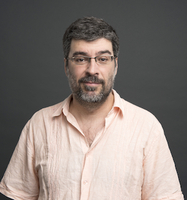
Luís A. Nunes Amaral
Professor of Engineering Sciences and Applied Mathematics
Professor of Medicine (by courtesy)
Professor of Molecular Biosciences (by courtesy)
Professor of Physics & Astronomy (by courtesy)
Engineering Sciences and Applied Mathematics
2145 Sheridan Road (Room M426)
Evanston, IL 60208, US
Phone:
+1 847-491-7850
Modeling the world-wide airport network
European Physical Journal B 38, 381-385 (2004)
Times cited: 200
Abstract
Recently, we have presented the first exhaustive analysis of the world-wide airport network. Two important results of that study are that: (i) the world-wide airport network is a small-world network with power-law decaying degree and betweenness centrality distributions; (ii) the most connected cities (largest degree) are typically not the most central cities (largest betweenness centrality). This second finding is particularly significant because of results demonstrating that nodes with high betweenness tend to play a more important role in keeping networks connected than those with high degree. Here, we investigate if current network models can explain this finding and we show that they cannot. Thus, we propose a new model that explains this behavior in terms of the geo-political constraints that affect the growth of the airport network. We further hypothesize that in other infrastructures, affected by similar geo-political constraints, critical locations might not coincide with highly-connected hubs.